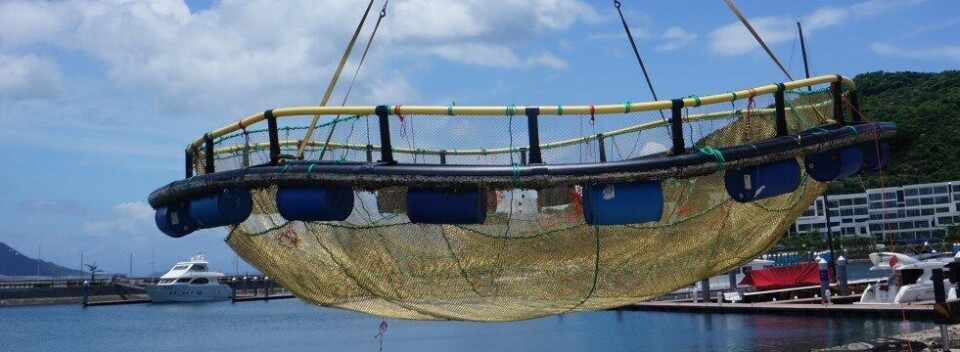
Brass net maker shows its mettle
German copper specialist Wieland-Werke AG and Norwegian fish farming services operator Lerow AS have formed a joint venture, BlueSea Technology AS, for the development and manufacture of brass nets and cages for aquaculture.
Wieland has developed a wire and subsequently a brass net made of the alloy Wieland BlueSea SE1, which it claims offers many advantages over conventional nylon nets. Wieland has consequently extended its value chain to include the weaving of nets which enables the company to manufacture and market complete aquaculture cages. To this end, Wieland has invested in a new weaving line with a weaving width of up to 12 metres at its factory in Vöhringen in Bavaria.
Wieland says aquaculture cages made of BlueSea Mesh have a significantly longer service life than conventional nets and that high mechanical strength offers very good protection for fish against predators and that the net retains its form even in stronger currents and stormy weather.
Less stress for fish
The company says brass stays naturally clean in sea water which considerably reduces cleaning effort. This in turn leads to a significant reduction of stress in fish, as interference with their habitat becomes less necessary.
At the end of the net’s service life, the material is 100 per cent recyclable, another advantage over nylon nets.
Wieland-Werke AG, headquartered in Ulm, Germany, specialises in copper and copper alloys, and brass is an alloy made from copper and zinc. The company employs 6,500 people worldwide.
BlueSea Technology AS has Daniel Steitz, Wieland-Werke AG (60 per cent of the joint venture), as the CEO, and Svein Jarle Midtøy, Lerow AS (40 per cent), the COO.
Lerow AS is part of the Bremnes Group, which has more than 15 companies operating in the business areas of aquaculture services, fisheries, property development and investments.























































